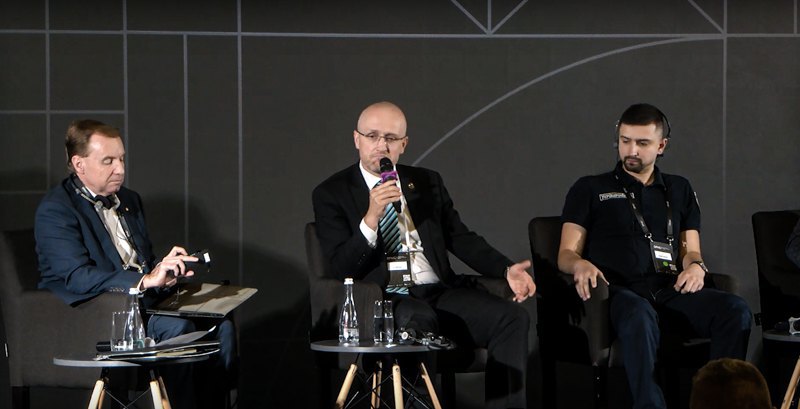
What do you consider to be the biggest challenge in the 18 months of full-scale war?
Richard Kubena, CSO at Czechoslovak Group's CSG Land System and commercial director at Excalibur Army, believes that the first challenge was back in 2014, when Russia invaded Crimea and eastern Ukraine.
"The second challenge began on 24 February 2022, when I woke up early in the morning and received a message from my friends, and a few hours later, people sitting in this room started calling me and saying, 'Richard, we need to do something, we need to help the country, please prepare a list of equipment, vehicles, ammunition that you can send immediately. And I said: okay, that's a challenge, but what about the licensing, which usually takes two months? Our government said that the licence was no longer a problem, we got it in two hours. We decided that we had to do something, got together and prepared the first equipment, which was sent to Ukraine on Monday, 28 February, if I'm not mistaken. And after that, we received new calls every day.
Another challenge: a man from Ukraine came and said he wanted to buy all the tanks we had. I told him that this was impossible because another client had already bought them. He said, 'Okay, tell this client that he will have to wait and give us these tanks'."
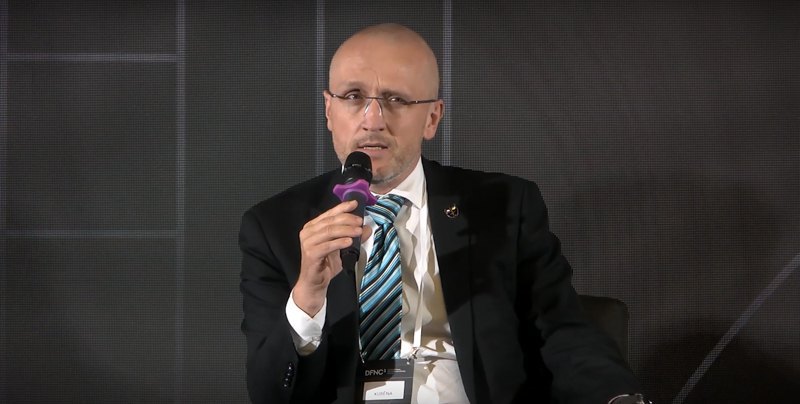
"We said: let's try it. A few days later, the Czech Ministry of Defence approached us. They said they knew we had a large fleet of vehicles and they wanted us to deliver them to Ukraine quickly. I said: okay, but everything is booked. Our capacity in 2022 was 50 units per year. We can specifically increase our capacity by no more than 10 units. And they insisted that they needed 10 tanks in a month. In the end, we provided Ukraine with 150 units by the end of 2022 and another 190 in 2023.
All this means that there were many challenges and everything was possible only thanks to the great involvement of our government, our people and the desire of the Czech people to help Ukrainians."
Excalibur Army is a leading Czech company which, among other things, develops and manufactures military equipment, sells heavy military wheeled and tracked vehicles, spare parts, does repairs and maintenance.
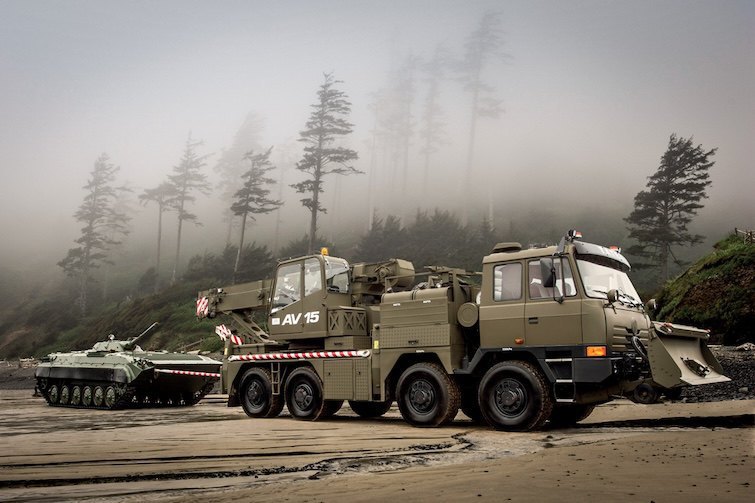
German Smetanin, CEO of the Ukrainian Defence Industry Joint Stock Company:
"At the beginning of the full-scale invasion, most types of mines and artillery shells were not mass-produced by our enterprises or others in Ukraine, and this was a very significant challenge for us.
But thanks to the fact that you and our other partners bought us time to develop blueprints, technological documentation, and prepare production lines, we were able to survive in that short period of time to start mass production. Today, we have a fairly wide range of products which we manufacture in Ukraine. Unfortunately, the volumes are still lagging behind the production capacities of the aggressor country, but we are working every day... and the government supports us, the public sector of the economy, private enterprises are very supportive of our production capabilities and the development of our production. That's why we are increasing output every day. We are grateful for your support."
We are working with our partner countries on some mortar rounds and artillery shells, Smetanin said.
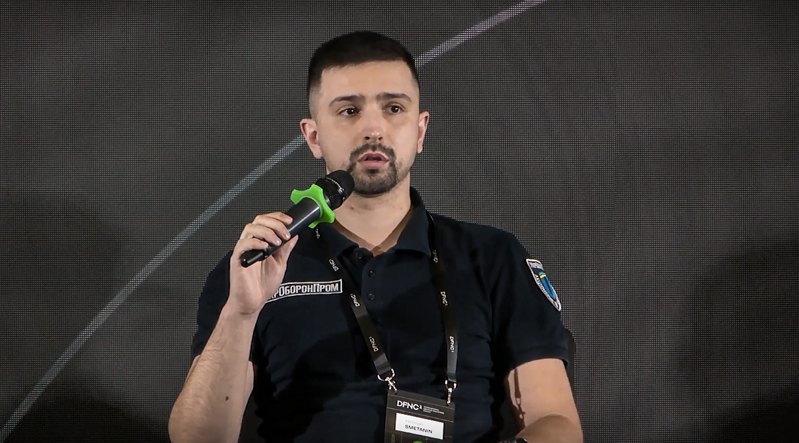
"We are grateful for the help in setting up mass production. The biggest challenge was development, because it takes a lot of time. But our engineers, designers, and technologists managed to reduce the time to master production and launched it. Today we are facing the challenge of scaling up. The president, the minister of strategic industries, the president's office, and the Ministry of Foreign Affairs are working to ensure that we can receive components as a result of cooperation and increase our own production."
The Ukrainian Defence Industry Joint Stock Company (Ukroboronprom before the reform) is a strategic manufacturer of weapons and military equipment in Ukraine. The company unites state-owned unitary enterprises in strategic sectors of the country's defence industry.
Gorkem Bilgi, executive vice president at Turkey's BMC Defence, said that his company has faced several challenges in terms of supply.
"Of course, we had a few problems. We had some advantages and disadvantages. I want to start with the disadvantages. First of all, there were requests and urgent needs of the Ukrainian army. After the pandemic, in this situation, there were big problems with supplies for our company," he said.
His company uses not only Turkish products, but also those from the USA, Germany and other countries.
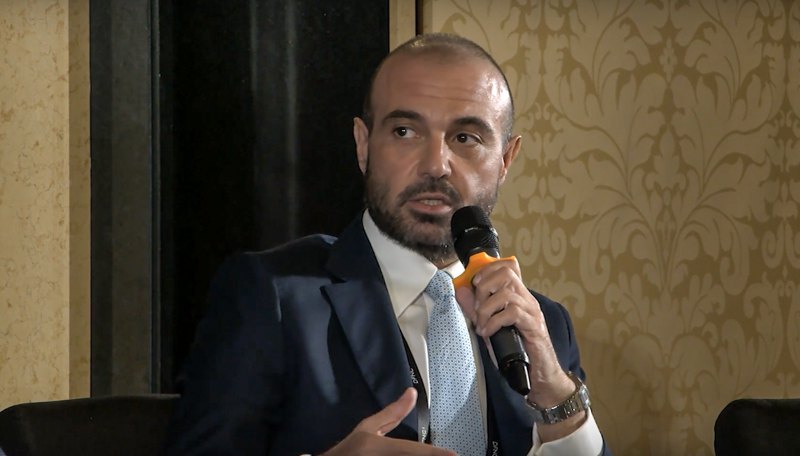
"On the other hand, we had advantages because the Turkish army is a little bit familiar with such things and we have supplied certain platforms to combat zones. At the same time, it was difficult to maintain logistics and continue operations," he said, noting that urgent work was complicated by transport and security issues.
Bilgi added that as a platform provider, his company needs to see the terrain in which hostilities take place, understand the requirements and philosophy of the end user of the products.
"We need to understand the operational capabilities. But at the beginning, we couldn't know this, we couldn't meet. After the first delivery, we realised the needs and technical requirements. Now, of course, we also face certain challenges. One of them is subsystems, equipment, fittings and so on," he said.
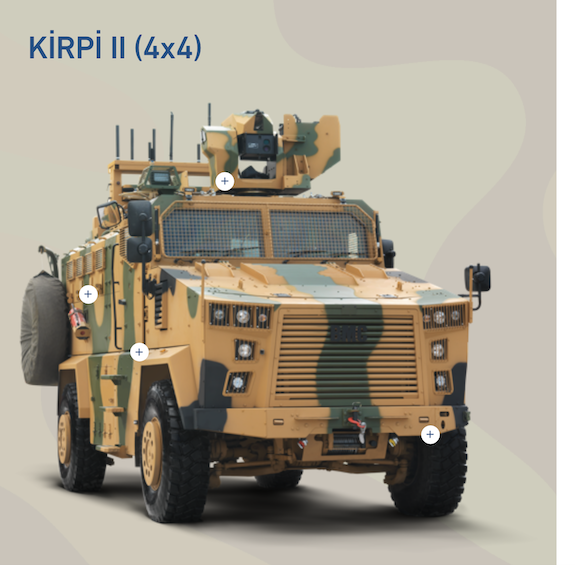
BMC is one of the largest manufacturers of commercial and military vehicles, founded in Turkey in 1964. BMC offers customised solutions for the automotive and defence industries with a wide range of products, skilled human resources and high production capacity. The company has developed and manufactured many different configurations of commercial and military vehicles, from buses to trucks, from armoured and mine-resistant vehicles to tactical wheeled vehicles, from tracked vehicles to unmanned ground vehicles and howitzers.
Maximilian Froch, Director of Strategic Program Organization International at Rheinmetall AG:
"I think we can absolutely agree that there was not one big challenge, but many, many big challenges. Some of them were solved very quickly, for example, export licences, a process that usually takes time. But when it came to support for Ukraine, the German government and others were really very, very responsive to deliver assistance in a very short time."
Froch added that his company, as well as the Czech company, was asked what it could provide as soon as possible and what it could provide in the medium and long term.
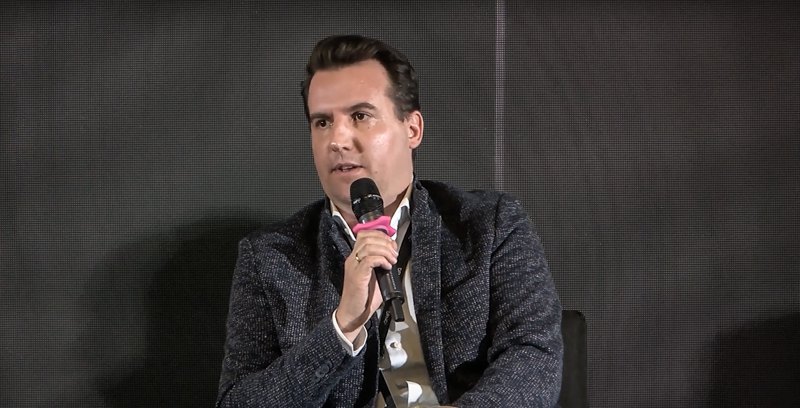
We have supplied several hundred armoured vehicles, combat vehicles, and several hundred thousand pieces of ammunition. Many of these items have been collected and donated to fight back Russia. However, there is still one really serious challenge: how well we meet the demand. Right now, Rheinmetall is ramping up its capacity, and we need to cope and supply as much as Ukraine needs. Our supply constraints are another major challenge."
He added that service for a country at war is something completely new for many industries.
According to him, Rheinmetall is currently working with Ukrainian partners on maintenance of the equipment it has already provided.
Rheinmetall is a German engineering concern, a leading manufacturer of military equipment, components and weapons in Europe. It has provided Ukraine with a variety of weapons, from automated systems to combat drones to heavy machinery.
Yuliya Vysotska, CEO of Practika PJSC:
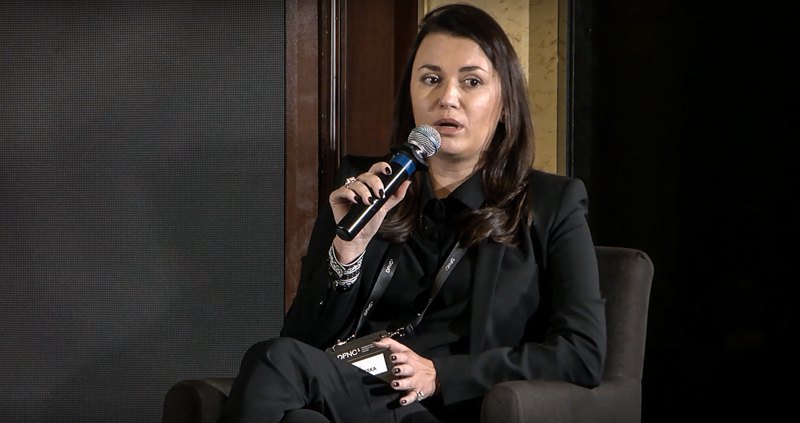
"You've probably heard the name Kozak. We have different vehicles. Now we produce about 60 vehicles a month (which is quite a lot): from 4x4 to 6x6, for different agencies, the battlefield, the police. It's quite difficult to be the last to talk about challenges because many of us have faced the same challenges [as the previous speakers]. Mainly with logistics. Not only because of COVID-19, as you know, our borders were closed. It was difficult. Since we had to increase the number of vehicles 10 times, it was a challenge for our suppliers to do just 10 times as much. And really fast.
Secondly, we faced a situation that was not spelled out in either NATO or Ukrainian standards. The battlefield was changing, and the challenges were extremely fast. We had to meet the needs of our customers, our soldiers, and help them survive."
The company's vehicles transported various cargoes: ammunition, the wounded, and the dead. "They transported everything possible," Vysotska said.
What are the takeaways from cooperation with Ukrainian companies during the war?
Richard Kubena believes that his company has learnt a lot from its cooperation with Ukrainians and is still learning.
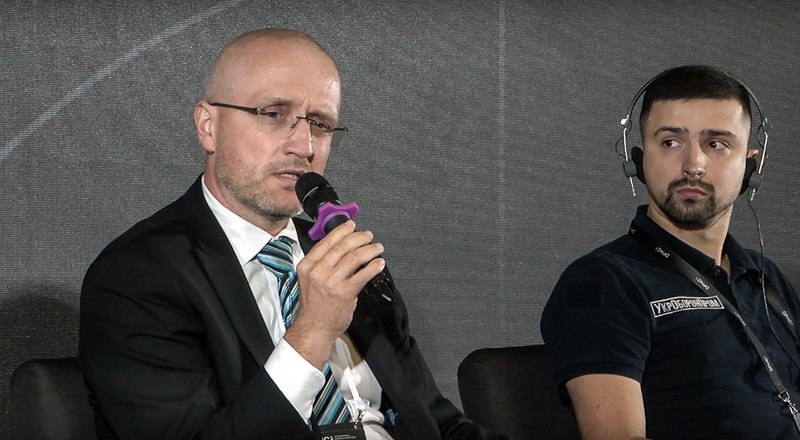
"Perhaps the first thing we learnt is that we have to completely change our attitude. Before the war, Ukrainian companies were seen as partners, but many of them were also competitors. We immediately changed our approach and competitors became friends and business partners.
Secondly, we had to increase our flexibility. This does not mean that we were not flexible before, but when customers asked for special brackets, switches or functions, we said – okay, but it takes time and proper preparation. The war changed everything. Sometimes, soldiers would come and say, "Your equipment is great, but with this function, for example, if the hoses and hydraulic pipes are not covered with additional iron, it can easily be damaged in a minefield. And we had to do something to solve the problem."
Richard Kubena also noted that the company used to work with many suppliers. Some of them failed, which led the company to think about developing independence. It immediately began to build a supplier base for long-term projects and strategies, investing in new production together with partners.
Kubena noted people from Ukraine who had to leave because of the war: "Ukrainians are very well educated, trained and hardworking. In the first months, they were able to work 14 hours a day, including Saturdays and Sundays, just to help the country."

Gorkem Bilgi said that working during the war was also a challenge for them, as the profile of each mission, each case, was radically different from the previous ones. "We worked with the Turkish armed forces in the south-eastern part of the country during some of the regional conflicts. And we have learnt a lot from the end users," he said, stressing the importance of communication between the manufacturer and the consumers of the products. His company plans to operate in Ukraine, not just to make urgent deliveries.
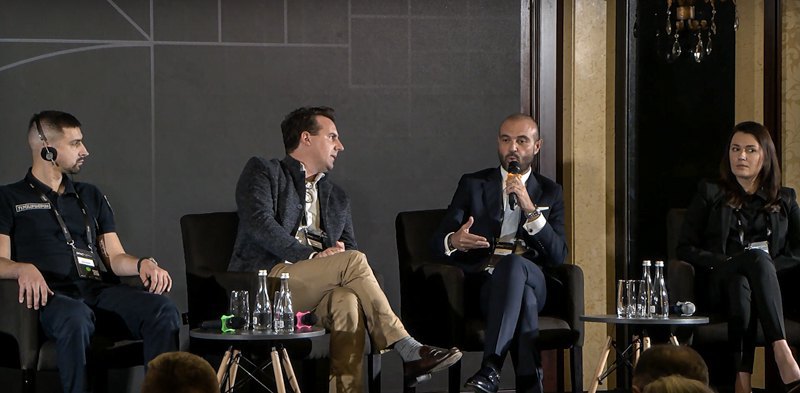
When asked how to encourage foreign companies to invest in Ukraine's defence sector, German Smetanin said that before the full-scale war, they worked with many countries. But first and foremost, we were talking about sales to foreign markets. We focused less on supplying our own army and building up reserves.
"After the invasion, the vector, of course, changed. We have lost some partners, but fortunately, we have gained more sincere friends, more reliable partners who are always with us, who are ready to help, not only to develop us but also to develop together, to create new products, to work at the best training grounds in the world, to test products made both abroad and in Ukraine together. They are ready not only to supply products, but also to develop joint ventures in Ukraine."
Today, the Ukrainian defence industry is creating projects that will be relevant for a long time, Smetanin said.
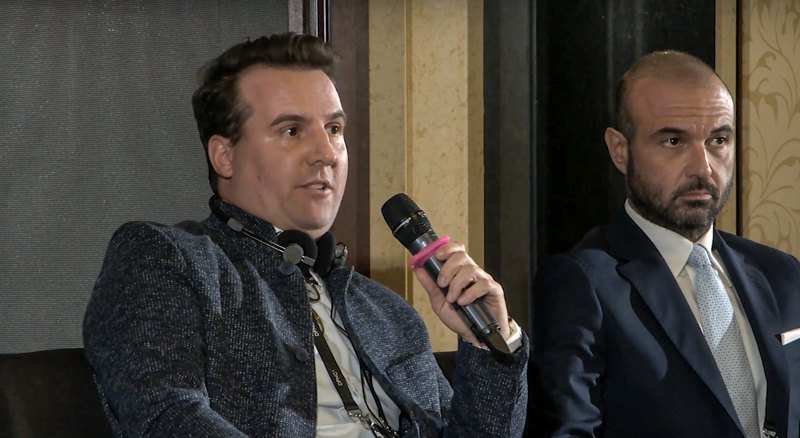
Maximilian Froch noted that before the outbreak of a full-scale war, there was a discussion about whether the world really needed tanks, and if so, how many. Now the question is how to have enough of them.
"This is what we are working on now, which is stressful and puts pressure on the industry, because the capacity before the war was limited. And now there is no equipment in the warehouses. So it's about how to expand capacities at a speed, to cope with the high demand that actually exists in Ukraine."
Yuliya Vysotska noted that state and private factories can partially meet Ukraine's needs for armoured vehicles, including infantry fighting vehicles. But the defenders need many other modern vehicles, she added.
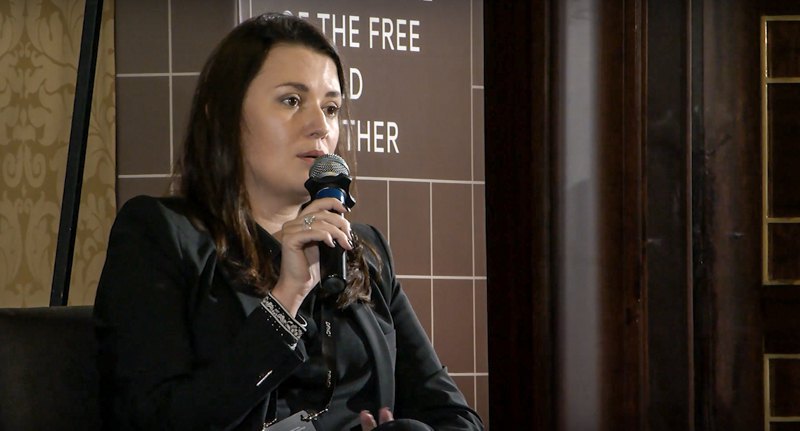
Human life is the highest value, so technology must work to preserve it. In particular, special high-tech equipment for detecting explosives and demining, which is installed on infantry fighting vehicles. It is often used only once, because Ukrainians do not have enough spare parts, knowledge and communication with manufacturers to restore it. The products come from all over the world, and it is difficult to repair everything that is damaged – and this is another challenge that needs to be overcome together.








